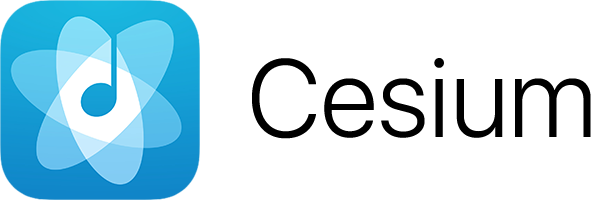If you follow any other self-indulgent indie dev blogs, you've probably read the "App Store Reviews Suck" post. Here's one of the most recent Cs reviews on the US App Store:

It's pretty easy not to let this one bother me. I know Cs is a well supported app. I do my damnedest to respond to every email, tweet and post I receive. There's a Twitter Account and this web page right there on the App Store. I mod a Cs specific subreddit. And I know this user probably hasn't tried to contact me, because I would have responded. It's a good place to rant about my inability to contact the reviewer, because I'd love to help! I do shamelessly self-promote, and since those are higher traffic pages they turn up higher in the search results than this modest little site. Unfortunately that's out of my control. In the end, there's plenty more reviews and comments that praise the level of support and accessibility I'm able to provide. I'm confident that it is apparent how much I care about my users. It's all good.
So we could have that conversation again, but it's all been said. The review will sit there and affect how some people may perceive me, and the app and maybe it will prevent a download or two. Maybe im.stillhere will think that the feedback and support options coming in 3.2.3 (hopefully only a few more days!) are in response to this review and will change it. Probably not. What I think is more interesting is the expectation in the review. What the user thinks they are buying, or should be buying, and how that translates to indie developers.
Because this reviewer praised the product, said it was much better than the stock option, but wouldn't recommend based on the perceived quality of the service. So what is an app? Am I providing my customers with a product, service, both, or something else entirely?
It’s an interesting relationship we have with our apps. Looking at the reaction to Music.app (at least from Cs users, who would naturally be coming from a place of dissatisfaction) or perhaps more famously the situation surrounding Marco Arment releasing and then immediately pulling support for Peace, people genuinely felt betrayed. That they’d been sold a bill of goods. No one wants to use an abandoned app. But is that a fair expectation? For open-ended support and improvements in exchange for a one-time purchase? If the expectation is for the developer to continually work on the app than the reciprocal relationship would be that users would pay for the updates. Surely if you’re only prepared to pay for the product once, you’re only entitled to the product in the state you purchased it?
Still, to a degree, this expectation is fair. App’s shouldn’t be buggy. If you bought a car and the turn signal didn’t work sometimes, or the car seemingly randomly shut off you’d expect that to be fixed. You’d expect prompt customer service in exchange for your business. Perfectly reasonable. However, you probably wouldn’t roll in to the dealership after a year expecting them to upgrade your stereo to the version included in the latest model, and hey, throw in power windows because those are stock now too.
But even though I'm a dev (sort of), I'm also a user. And when it comes to apps, the above just feels wrong. I share that same sense of entitlement. Great apps surprise and delight with new features, visual facelifts, and the like. Watching and appreciating a beloved app mature and evolve is part of the joy of it all. I totally get that the bulk of this post makes me sound like a selfish, greedy asshole. If an app I used actually positioned itself like that? I'd ditch it too.
So what’s an indie dev to do? Paid updates aren’t viable, because that model sucks. It just feels like a ripoff. Ask the folks at Instacast how it worked out for them; I was one of their customers, but I bailed long before the company went bankrupt. Hell, there’s people who aren’t prepared to pay the initial two bucks. (that’s right app piracy sites; I see you). I spend more time now engaging with users and potential users than I do actively working on Cesium, and the return on investment for that support is pretty low. It’s absolutely necessary, because word of mouth is practically the only way for indie apps to get noticed, and the only way to get that is make damn sure you have happy customers. Plus, it's enjoyable. I love hearing from happy users who find Cs to be a real solution to a problem. I love helping people out who are having issues. I want everyone to have a positive experience with Cesium. The unfortunate reality however, is that there is an economy of scale that works decidedly against indie devs. If (and hopefully when, I’m no saint) Cs became twice as successful as it is now – or if I were to release, I don’t know, say a podcast app? – I’d reach a crossroads. I couldn’t deliver the same level of service with twice the correspondence. And I’d be nowhere near profitable enough to bring on a second person. And I couldn’t afford to make development my full time gig. So it seems like there may be a catch-22 zone where indie success could actually prohibit successfully delivering the service users have come to expect; but the product is at a state where I’d be better served financially to concentrate on marketing the hell out of it and screw the users after I get their money. Which brings us full circle to that review, the accusation of doing exactly that, and my initial question.
What is an app? I'm not sure I know. But I do know that a successful app is satisfied customers, so that's what I'll shoot for.
Be well,
Mike
